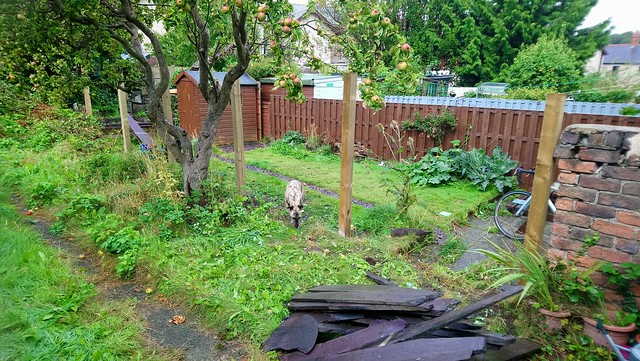Podcast: Play in new window | Download
Today we are looking at the origins and use of emoji, those little symbols that appear
in text messages, emails and other electronic communications.
An emoji is a pictogram, logogram, ideogram or smiley used in electronic messages and web pages. Emoji are used to fill in emotional cues otherwise missing from typed conversations. They include facial expressions, common objects, places and types of weather and animals [source].
The word emoji comes from the Japanese word 絵文字 (emoji), which is also written えもじ or エモジ, and means emoji, pictorial symbol, pictograph or pictogram, or literally “picture writing” [source].
Emoji first appeared in 1997 on a Japanese mobile phone made by J-Phone called the SkyWalker DP-211SW, which included 90 black and white emoji. It didn’t sell well and the emoji were rarely used.
A set of 176 colour emoji were created in 1999 by Shigetaka Kurita (栗田穣崇), who was inspired by manga (漫画) comics, which use symbols known as manpu (漫符) to represent emotions, actions, etc. They appeared on the i-mode pager developed by NTT DoCoMo. The emoji became popular in Japan and other companies starting add similar symbols to their mobile systems.
Between 2007 and 2010, the Unicode Consortium and other standarization bodies in the USA, Europe and Japan discussed and eventually agreed on a set of 722 emoji. These were included in the version 6.0 of Unicode, which was released in 2010. More emoji have been added since then, and they have become popular worldwide.
In 2014 the founder of Emojipedia, Jeremy Bruge, declared 17th July as World Emoji Day [source].
In 2015 the face with tears of joy emoji 😂was named Word of the Year by the Oxford Dictionaries [source].
There have been several musicals based on emoji in Los Angeles and New York, and The Emoji Movie was released in 2017 [source]..
According to a 2017 study at the University of Michigan that analysed emoji use in over 1.2 billion messages, the most widely used emoji are the face with tears of joy (😂), the red heart (❤️) and the smiling face with heart eyes (😍). People in Australia, France and Czechia are more likely to use happy emoji, while these in Mexico, Colombia, Chile and Argentina prefer more negative emoji.
The emojitracker site shows realtime emoji use on Twitter. As I’m writing this, the face with tears of joy (😂) appears in the top spot, followed by the red heart (❤️), the loudly crying face (😭), the smiling face with heart eyes (😍), and the recycling symbol (♻️).
The appearance of emoji vary between different operating systems, and the way they’re interpreted can vary from person to person. Some have developed particular meanings in specific contexts or places. Some are culturally specific, such as the white flower emoji (💮), which is used by teachers in Japan when their students have done well. It is also used to indicate love, happiness and beauty on special occasions such as Valentine’s Day. If you include emoji in a message, the person or people receiving it might not get the same meaning from them as you intended.
The novel Moby Dick has been ‘translated’ into emoji to become Emoji Dick or 🐳 (spouting whale), and a few other stories have been written in emoji. Whether readers understand them or not is another matter. Judging by the comments on one of them, most don’t. [source].
If you would like to support this podcast, you can make a donation via PayPal or Patreon, or contribute to Omniglot in other ways.







